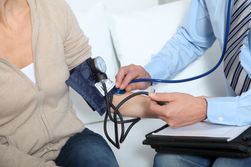What You Need to Know About Heart Disease

You’ve probably heard that heart disease is the leading cause of death in the United States. Still, despite how common it is, surprisingly few people know the key facts regarding heart disease. The guide below provides a primer on heart disease, including its symptoms, treatments, and when to see your primary care physician.
A Guide to Heart Disease
What is Heart Disease?
Heart disease is a term describing a range of conditions that negatively affect the heart and its functions. These conditions include:
- Arrhythmia: an illness where the heart beats abnormally
- Coronary artery disease (CAD) and atherosclerosis: conditions that affect the arteries, either with a buildup of plaque or by general hardening of the arterial walls
- Cardiomyopathy: a condition wherein the heart muscles deteriorate
- Heart defects or infections
Signs and Symptoms
Symptoms common across the spectrum of heart illnesses include weakness, fatigue, low energy, and feeling lightheaded or dizzy. People with heart disease may also feel cold and experience numbness in their limbs due to poor circulation. Shortness of breath and chest pains may also accompany heart diseases. If you experience any of these symptoms, it’s important to see your primary care physician for diagnosis as soon as possible.
How is Heart Disease Diagnosed?
 Your primary care physician uses a series of tests to diagnose heart disease. Your doctor will conduct a thorough physical to check your temperature, heart rate, and breathing. Usually, they’ll also take a blood test to scan for high cholesterol, which often accompanies certain heart diseases. Other procedures like a CT scan, ECG scan, or ultrasound may be used to further pinpoint your specific illness.
Your primary care physician uses a series of tests to diagnose heart disease. Your doctor will conduct a thorough physical to check your temperature, heart rate, and breathing. Usually, they’ll also take a blood test to scan for high cholesterol, which often accompanies certain heart diseases. Other procedures like a CT scan, ECG scan, or ultrasound may be used to further pinpoint your specific illness.
Treatment Options
Lifestyle adjustments and medication can manage most forms of heart disease. Switching to a healthier diet that’s low in sodium and cholesterol—in addition to regular exercise—can help curb symptoms or decrease your risk. If necessary, surgery may be required to remove a blockage in an artery or fix problems directly in the heart.
Heart disease can be debilitating, but it doesn’t have to control your life. For personalized care to help you manage your heart health, make an appointment with a primary care physician at HDR Healthcare Network in the Bronx, NY. Their network of medical centers and urgent care clinics provide comprehensive care and educational services to help their patients live healthier. Call (718) 617-2500 to make an appointment.
About the Business
Have a question? Ask the experts!
Send your question

